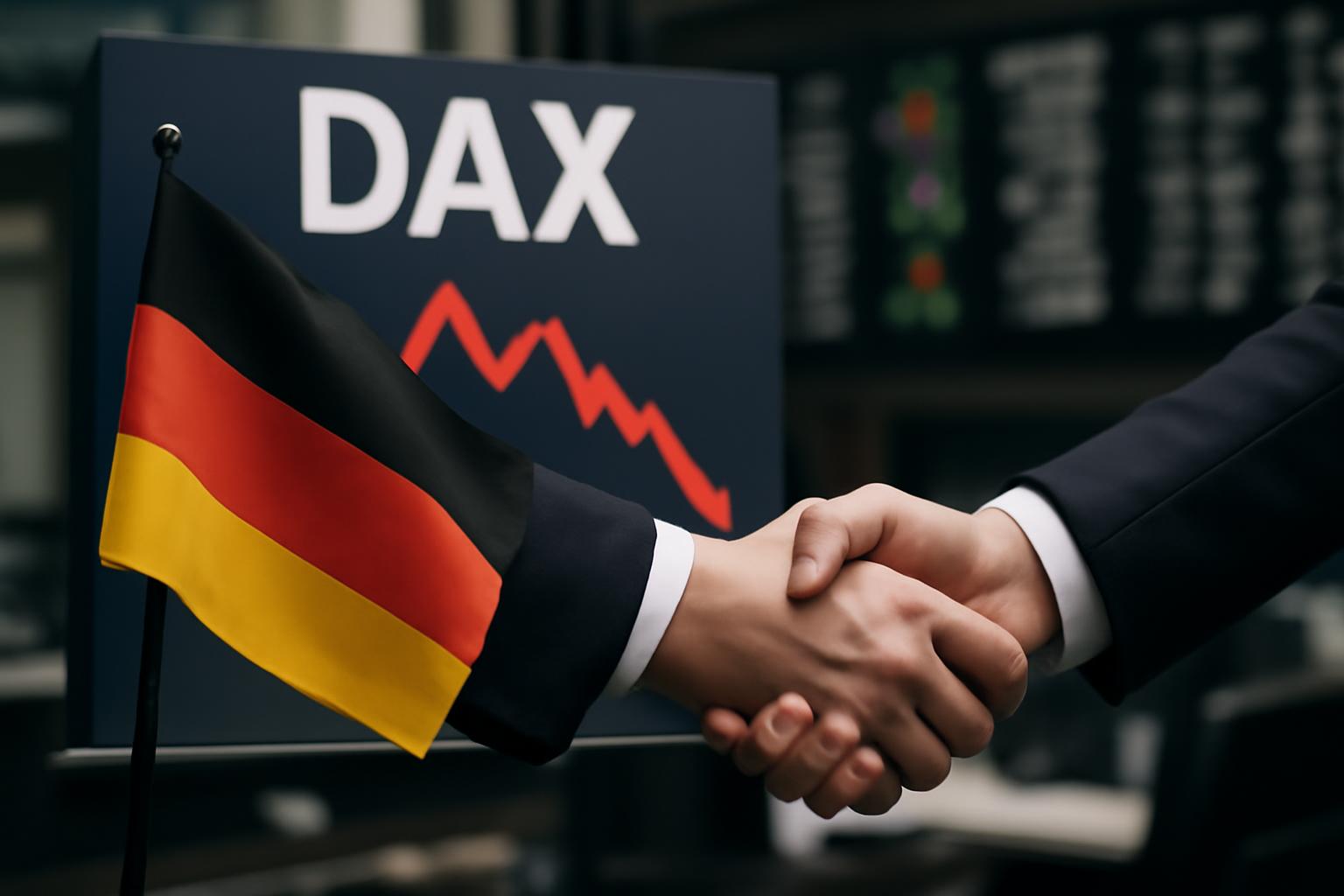Investors on the German stock market are gripped by worry as the deadline for a US-EU trade pact approaches. With President Trump’s administration threatening onerous tariffs—up to 30%—on European exports, the looming uncertainty has kept the DAX below the psychologically vital 24,500-point level, stoking fears of further declines should no deal be struck. Regional momentum is negative, with Asian exchanges slipping and Wall Street ambivalent; commodities and currency markets add to the nervous atmosphere.
The threat is not abstract: Volkswagen has slashed its profit outlook, blaming tariff anxieties, and Traton, VW’s commercial vehicle affiliate, warns of shrinking margins in the US. Puma, too, foresees losses instead of profits—again, the specter of tariffs stalks every sentence. Meanwhile, Deutsche Börse is a rare bright spot, with European investment demand propping up its results, and the euro sags further. In a sobering postscript, Intel’s Magdeburg project is officially cancelled due to sluggish demand. Even in the world of entertainment, international entanglements persist as Paramount’s sale draws scrutiny amid political controversy.
What madness is this! We find ourselves at the mercy of a government—nay, a single administration—whose arbitrariness makes a mockery of the global division of labor and the spontaneous order by which prosperity is built. Must the fortunes of entire sectors, not only in Germany but across Europe, hinge on the unpredictable fiat of American trade negotiators or the whims of one president’s electoral calculus? Have we learned nothing from history about the folly of barriers and state meddling in commerce?
These tariffs, whether 15% or 30%, are not merely economic measures; they are the heavy hand of coercion wielded against citizens who, through peaceful exchange, have bound their fates together across continents. Germany’s export-reliant industries are not just “national champions”—they are part of a global web of voluntary cooperation, and to endanger this is to spit in the face of centuries of hard-won progress.
Let it be said without equivocation: No bureaucrat, no politician—be they in Washington, Berlin, or Brussels—possesses the knowledge or wisdom to anticipate the myriad consequences of such interventions, let alone to improve upon the market’s spontaneous order. We see the visible wreckage: profit warnings, stymied investments, factories abandoned, and the seed of uncertainty sown across markets large and small. Yet what of the unseen—the innovations never pursued, the investments never made, the prosperity quietly strangled at birth by threats and retaliations? Protectionism masquerades as strategy, but in fact it is always the road to poverty and conflict.
Europe must resist the temptation to respond in kind, for two wrongs do not make a right. We can only hope that sanity prevails and that, at the last hour, the wisdom of free trade asserts itself—not merely as a matter of transaction but as the very basis of international order and peaceful progress. Until then, we watch the DAX, the euro, and every quarterly forecast not as a mere numbers game, but as signals of a deeper crisis: the perennial tension between the creative energies of the free market and the destructive compulsion of state power. May we choose wisely.
